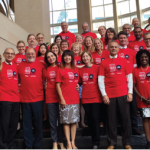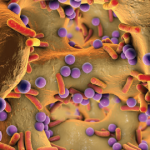Wider awareness and understanding of the more than 100 different rheumatic diseases is a vital element in our work as rheumatologists and rheumatology health professionals. Stimulating interest and engagement among lawmakers, patient groups and the public at large is essential to successful advocacy efforts, as well as the overall future of our specialty. This September,…









